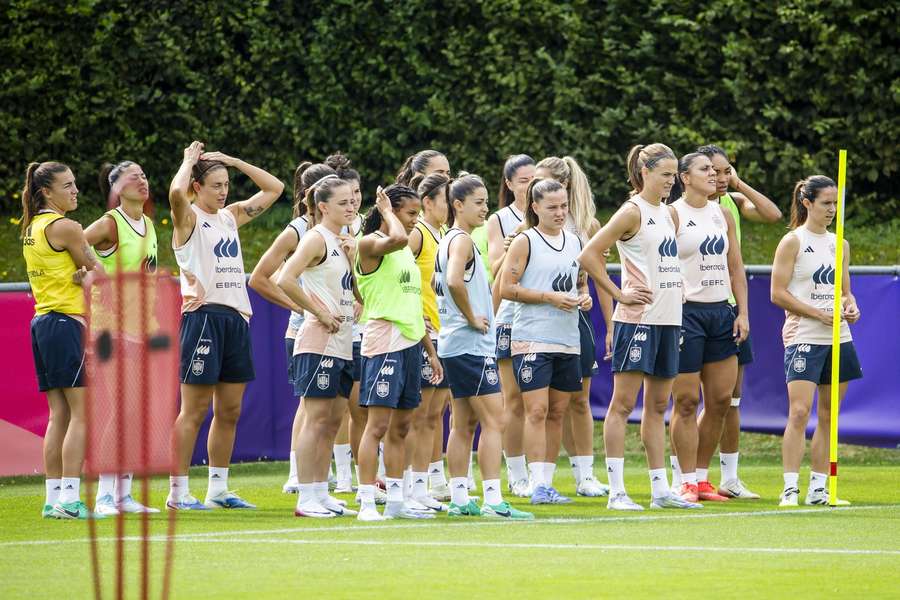"Se Acabo." These two words were everywhere the day after the conclusion of the 2023 World Cup, which was won by Spain., highlighting firstly the sexual assault endured by Jenni Hermoso at the hands of Luis Rubiales, but also an entire misogynistic and patriarchal system that allowed for a sense of impunity, leading to this act finally being addressed in the courts.
The Spanish federation is at the center of the criticism expressed in various statements issued by the world champions, whose victory has been marred by the unacceptable behavior of their leader.
The 23 heroines were called to a rally, which they had deliberately requested not to attend as a form of protest, so they were flown to Valencia against their will, under the threat of being suspended for several months by their clubs.
The captains then took on their responsibilities and began late-night meetings with senior federation officials to rectify matters and legitimately demand real changes, having already achieved a few superficial adjustments to persuade 'las 15' to return to the national team before the World Cup.
Everything was discussed: travel arrangements, accommodation, training conditions, respect for recovery time, group planning, individual privacy, staff qualifications, the inclusion of children for players who are mothers, and the RFEF's level of demands and commitment to women's football.
A whole range of issues that have become daily concerns for players who are expected to perform at the highest level. Their male counterparts do not have to face these worries.
Enjoying their 'best' base camp.
At the last UEFA European Championship, when Spain was eliminated by England in the quarter-finals, the players were accommodated in Marlow, a village of 14,000 residents located to the west of London, which is particularly remote.
It worsened at the 2023 World Cup, when La Roja stayed in Palmerston North, New Zealand, in a substandard hotel, before having to relocate because the provided facilities were inadequate and the pitch was in terrible condition. The Spaniards alternated between Wellington and Auckland before flying to Sydney.
The first notable change is that the squad is now routinely entitled to stay in five-star hotels. This is a significant improvement from the shabby accommodations in industrial areas that previous generations experienced.
Since then, everything has transformed. In Switzerland, the Spanish national team trains at the Juan Antonio Samaranch Stadium, one of the few training venues in the competition that meets all UEFA standards.
The rest of the time,Alexia Putellas and her teammates can enjoy a base camp in Lausanne, one of the largest cities in the country, in a modern hotel nestled between the Alps and Lake Geneva, "considered to be the best in the tournament," according to a UEFA source cited by Sport.
The location is designed by the RFEF as a living space where the players should feel at home.Irene Paredes, for instance, can meet her son Mateo in a designated area after lunch.
"It's undoubtedly the best base camp in history. And the city they've chosen for us is perfect," says Patri Guijarro, who is enjoying this tournament after having dismissed the last two competitions while advocating for the same improvements. "Honestly, we feel right at home."
The Spaniards have even been able to take advantage of their strategic location between Bern and Thun, where they played their group matches, to visit nearby towns during their days off, which are also more frequent and less restricted than in previous tournaments.
A complete transformation.
In addition to the base camp, a whole ecosystem has evolved around the world champions to enable them to focus solely on the sport and their performances: a delegation of at least 60 individuals, specialists in every field from communication to nutrition.
"I'm really enjoying this tournament, perhaps even more than in previous ones," confesses Paredes, 34, with 118 caps to her name.
"We've reached a peaceful moment where we just want to enjoy the football."
Right behind her, Montse Tome also observes the improvement in the treatment of the national team, and sees the fact that the questions asked on the eve of the final only pertain to football as "a significant change we've made."
However, the captain is cautious that La Roja should not become complacent after years of struggle: "Since the World Cup final, considerable progress has been made, but I am convinced that we must continue to open doors to normalize situations that are becoming increasingly common.
"We've shattered many barriers, we're a role model for both girls and boys, but there is still work to be done."











 Links
Links
 Contact
Contact
 App
App


